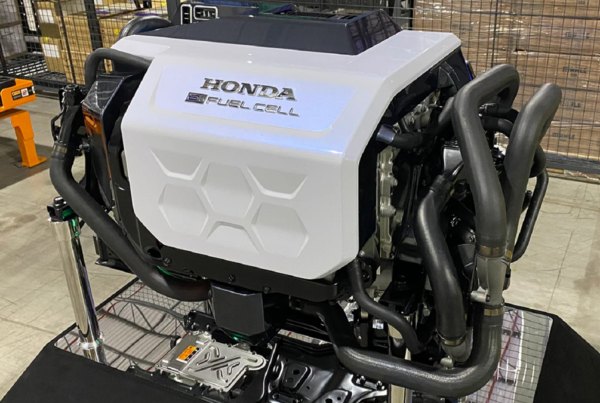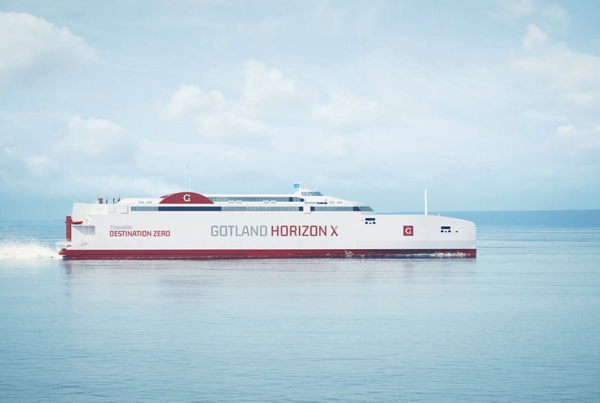
The International Council on Clean Transportation (ICCT) has published a new study which finds that hydrogen-powered aircraft could cap emissions from passenger aviation with policy support and “look surprisingly viable from a design perspective”.
According to the ICCT, liquid hydrogen combustion aircraft could provide carbon-free air travel on up to a third of global passenger demand starting in 2035. The study outlines that aircraft burning “green hydrogen” produced from renewable energy could enable flights up to 3400 km at reduced fuel costs compared to sustainable aviation fuel.
easyJet is advocating for the use of hydrogen in short-haul aviation to eliminate carbon emissions. In November, the airline joined Race to Zero, a global UN-backed campaign to achieve net-zero carbon emissions by 2050. In order to achieve this goal, technology for carbon-free flying, such as hydrogen, will play a key role.
The airline fully supports the ICCT’s conclusion that “significant government support will be needed to make hydrogen aircraft work” and that “they deserve a level playing field along with ‘drop-in’ sustainable aviation fuels, which remain scarce and expensive.”
easyJet has been urging industry and government collaboration to develop policies to promote the development of hydrogen-powered aircraft as well as the required technology, infrastructure and green hydrogen production.
Johan Lundgren, CEO of easyJet, said:
“We welcome the findings of this important report by the ICCT, which shows that carbon-free flight is possible over shorter ranges, something we have long argued. Hydrogen is an opportunity for British and European aviation, so we continue to urge governments to quickly put incentives in place to support it, develop regional hydrogen infrastructure, and level the playing field with sustainable aviation fuels.”
Championing the development of a carbon-free aircraft to decarbonise aviation has long been a focus for easyJet and the airline is working with partners across the industry, including Airbus, Rolls-Royce, Cranfield Aerospace Solutions and Wright Electric, to accelerate the development of zero carbon emission technologies and the required infrastructure. The airline is optimistic that it could begin flying customers on carbon-free planes from the mid-2030s.
Meanwhile, easyJet is the only major airline in Europe to offset the carbon emissions from the fuel used for all its flights. This comes at no additional cost to its customers and the airline only supports projects that are certified by either Gold Standard or Verified Carbon Standard. These projects reduce or remove carbon in the atmosphere. This is not a long-term solution, but we believe it currently represents the best way to compensate for the impact of the carbon emitted from flying, until new technologies such as hydrogen and sustainable aviation fuels become widely available.
Beyond carbon, easyJet is focusing on reducing waste within its wider operations and the supply chain as well as reducing plastic. By then end of 2021 more than 36 million single-use plastic items were eliminated from inflight operations. The airline also recently introduced new crew uniforms made from recycled plastic bottles. With 45 bottles in each uniform this has the potential to prevent 2.7 million plastic bottles from ending up in landfill or in oceans over the next five years.
About easyJet
easyJet is Europe’s leading airline offering a unique and winning combination of the best route network connecting Europe’s primary airports, with great value fares and friendly service
easyJet flies on more of Europe’s most popular routes than any other airline and carried more than 96 million passengers in 2019 – more than 16 million travelling for business. The airline has over 300 aircraft on nearly 1000 routes to more than 150 airports across 35 countries. Over 300 million Europeans live within one hour’s drive of an easyJet airport.
easyJet aims to be a good corporate citizen, employing people on local contracts in eight countries across Europe in full compliance with national laws and recognising their trade unions. The airline supports several local charities and has a corporate partnership with UNICEF which has raised over £14m for the most vulnerable children since it was established in 2012.
The airline takes sustainability seriously and is committed to reaching net-zero carbon emissions flying by 2050. Together with its partners, including Airbus, Rolls-Royce, Cranfield Aerospace Solutions and Wright Electric, easyJet is working to accelerate the development of zero-emission aircraft technology. In the meantime, the airline is offsetting the carbon emissions from the fuel used for all its flights, at no additional cost to its customers, and only supports projects that are certified by Gold Standard or the Verified Carbon Standard, internationally recognised certification schemes. In addition, easyJet continues to renew its fleet, operate efficiently, and aims to fill most of its seats.
Innovation is in easyJet’s DNA – since launching over 25 years ago, easyJet changed the way people fly to the present day where the airline leads the industry in digital, web, engineering and operational innovations to make travel more easy and affordable for its passengers.
The airline was named as Britain’s Most Admired Company of 2020 in the transport sector, retaining the leading position for a second year running. Britain’s Most Admired Companies study is the longest-running annual survey of corporate reputation in the UK.
Read the most up to date Fuel Cell and Hydrogen Industry news at FuelCellsWorks




